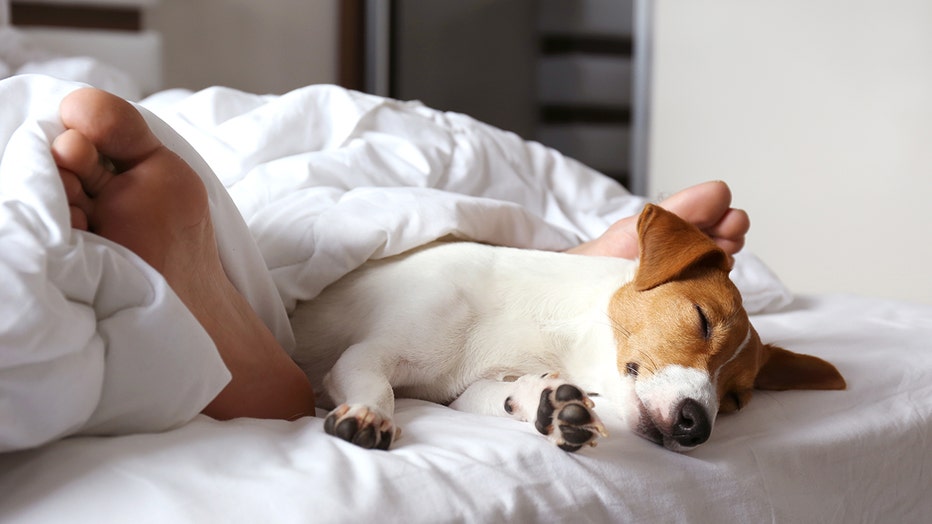Sleep variability may make you age faster, study finds
Are you staying up late to cram for an exam? Are you sleeping in on the weekends after a stressful work week? You may want to rethink your habits, as a new study shows that sleep variability could be making you age quicker.
Researchers at Augusta University in Georgia analyzed data from more than 6,000 adults who took part in the U.S. National Health and Nutrition Examination Survey between 2011 and 2014.
Using a physical activity watch and assessing biological aging indexed by a set of clinical markers, the team observed that larger variations in a sleep-wake cycle, like staying up late on the weekends, were associated with more accelerated biological aging.
The study, published in the journal "Sleep Health," found that those with a flexible sleep schedule had a biological age roughly nine months older than consistent sleepers.

FILE: Dog and its owner sleep in bed. (Credit: Getty Images)
"We are hoping our study is a wake-up call for people to increase regularity in their sleep patterns," Xiaoling Wang, a Professor of Genetic Epidemiology and lead researcher of the study, told FOX Television Stations, adding, "Day-to-day deviation in sleep is a modifiable behavioral factor."
The findings suggest that intervention aiming at increasing regularity in sleep patterns may be a novel approach for extending a healthy life span.
RELATED: Study finds link between long naps and obesity, high blood pressure
Wang said its team is further studying the distributions of the day-to-day deviations in sleep parameters in school-aged children and adults, as well as the potential social determinants.
Previous studies on sleep have shown that quality sleep has numerous benefits including strengthening a person’s immune system, lowering a person’s risk of heart disease and reducing stress.
RELATED: Eating junk food may hinder deep sleep, study says
But according to the National Institutes of Health, sleeping more on days off may be a sign that you aren’t getting enough sleep overall.
"Although extra sleep on days off might help you feel better, it can upset your body's sleep-wake rhythm," the NIH wrote.
The NIH said adults need 7 or more hours of quality sleep each night, but noted that 1 in 3 adults do not regularly get the recommended amount of uninterrupted sleep they need to protect their health.
This story was reported from Los Angeles.

